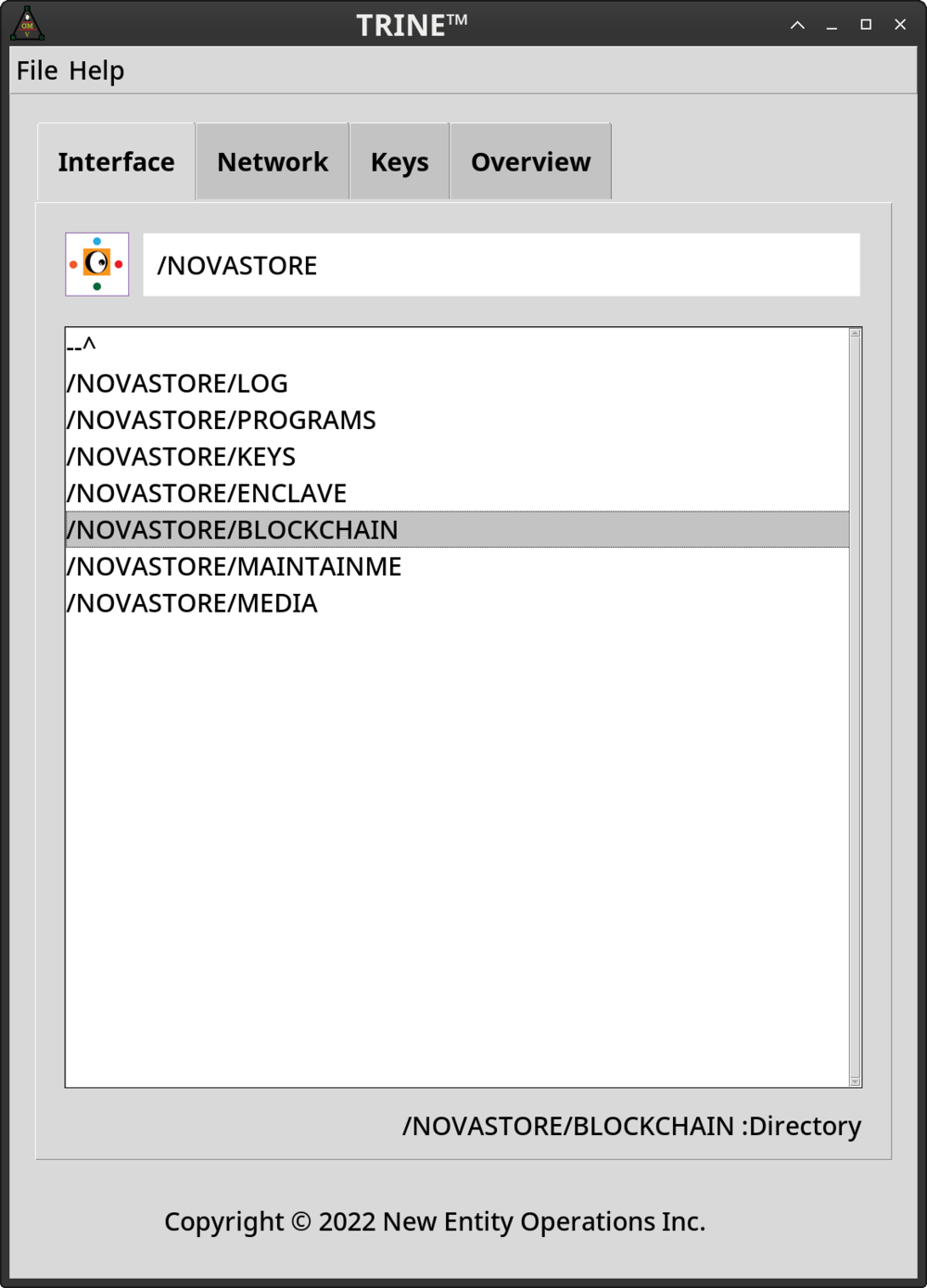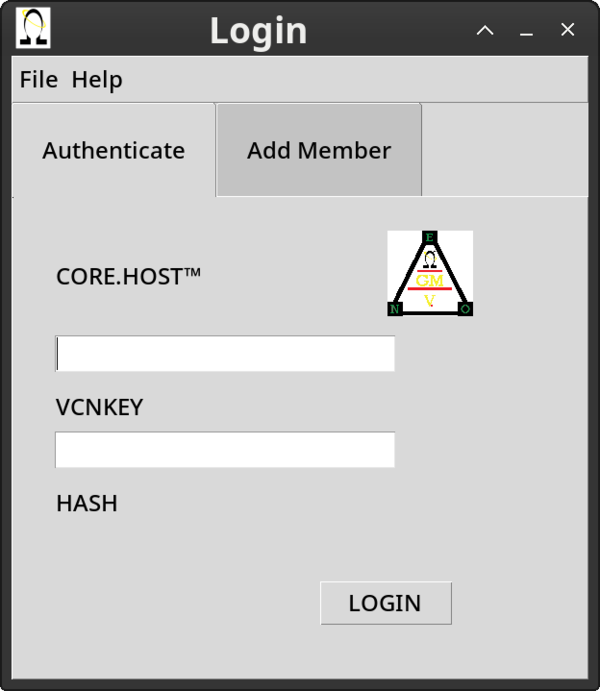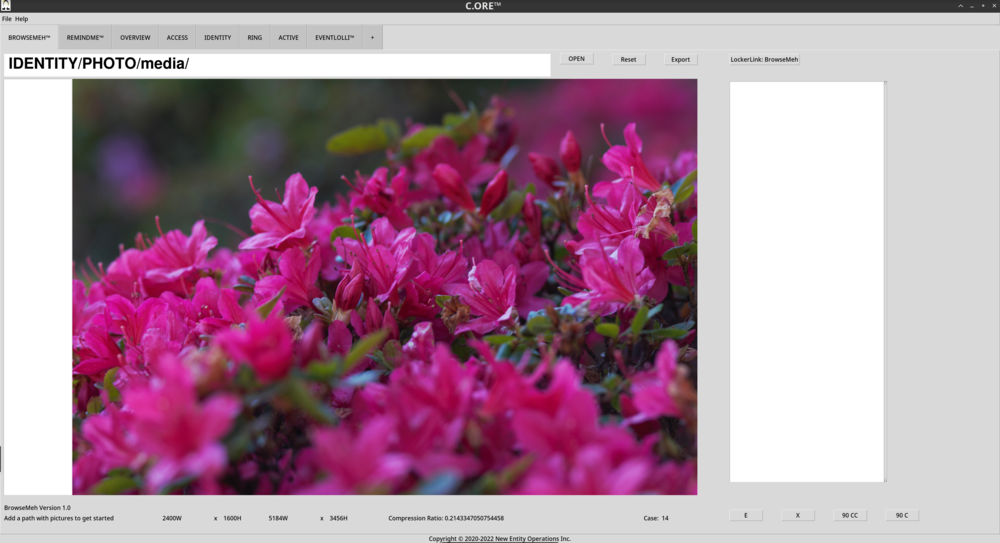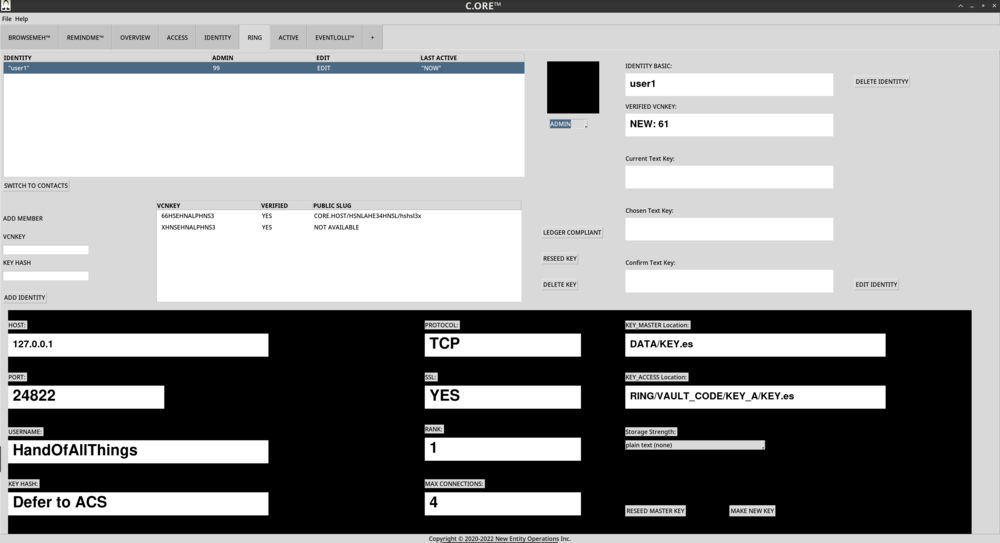 Outsider
Enter
Outsider
Enter
Like the photo on the front page, CORE.HOST™ can organize and display digital-media assets that originated in any location. They can be displayed in any format (think as big as you could ever need or as small as you could ever desire) - it'll serve them in a smart way to any device or display. These media-assets can be part of any digital-collection and rights are tracked according to your distribution desires. Any asset can be distributed to either paying customers or the public. The point of the system goes beyond this - the main idea is to eventually allow for anyone to take care of these things themselves and connect with other peers who are doing the same.
Each digital-media asset available in CORE.HOST™ is a part of an evolving Living Library™ that changes attributes each time a new object is added to the system or distributed according to the desired ruleset of the creator. In the past you had to belong to a specific content creator community and use all of their tools, but we're aiming to eliminate that concept entirely. Now you can be the content creator without having to spend all your time on someone elses servers. Our servers do the minimum to keep you able to create, edit, delete, publicize, or make private your digital media.
Valid questions: What is taking you guys so long to push features to the main site?
Valid answer: The goal is to prototype everything in a purpose driven way where when something is needed it can be added into CORE.HOST™. Since we're looking to keep everything tight according to EntityScript™ template driven rulesets, most things that are useful can also somehow be added into the system in a logical way. Mostly all the things someone usually does on the Internet have been needed at one point in time by the people buildling the site and many of the extended concepts behind it. So mostly all the relevant social media features have been at least put into a trial - chats, direct messages, blocking contacts, creating groups, etc. Most of the features that you would expect that are actually useful are built into the user pages already, but we still have that limited to a small number of people because as cool as the features are, the goal is to not have them exist on our servers long term.
So we're trying ways of getting as many features as possible onto YOUR computer. Why not, you already have an Internet connection and it's probably time to merge as many services together as possible and put them under your control or at least out of the hands of faceless mega corps.
In the future, you will interact with people that are on THEIR computer without needing to use us at all for anything besides identity verification, a service we'll continue to provide for a variety of services. Anything that will help with conneting and verifying the identity of peers will be pushed into the main site or a connected program that's distributed to the end-user from our servers at some point soon. Anything client facing applications we distribute will at least be open code and able to be read through for personal use. We will still retain copyright of the code because we're realizing that certain open source giveaway models are flawed and not valid to be continued into the future.
Next steps: Get all the backend and database stuff built out so the site can run in more or less an automated way. Right now, mostly all the template systems are standardized and the updated UI is being implemented gradually. In the near future, anyone can add any type of part to the system themselves without admin input.
All of these features are already prototyped, but the X factor was getting the server environment to handle all the required parts for that system to be both performant and secure - plus it had to have a design that was intuitive and that also took time. You'll notice the site going down a good amount until we're out of gamma and that's because we're building out stress-testing features to try to take it down now in every way possible so it can't be taken down unless we decide to take it down later.
We want to help people communicate better online. Both discovery and social-networking wise. With the people of the planet soon utilzing their own computers resources first and foremost with some tools and methdos we provide and that others can also provide - we can help this happen and transition most people away from data-mining entities in cyber space. But we wanted to do this all in a way that novel and new - a way that actually made sense. We're rolling that out now.
The site was first prototyped to help get the creative and information organizing efforts of anyone oh wheels and reducing the time you needed to spend on independent online services. Something that helps this happen is the self-managed key system that everyone controls themselves. Really your keys don't matter that much because they can always be destroyed, but your computer and the information they store matter. We are making it so anyone can sell media they crate or even just distribute content to their target audience directly from their own computer whenever they're online. If they need to be online all the time - we will provide the tools or abilities to do that from CORE.HOST™.
If you're looking for the prebuilt configurations, check out configurations
The release history can be found here Project Release History
The active-Block system (Blocks Ledger) has started so all public and private activity now operates through a key access/store Block-storage methodology.
There are many types of blocks available. You'll need a Key to create blocks. Also, you'll need a copy of the TRINE™ program to interact with CORE.HOST™. TRINE™ is keybased and can be extended to be voice operated. It serves as a complete access control and location manager for any digital system. It does things like access network-nodes, browse legacy www. portals, and prepare information on your system for sharing on CORE.HOST™.
Everything runs in vanilla Python, no additional libraries are required to run TRINE™. You can extend all CORE.HOST™ related programs to handle any block technology, such as Bitcoin, Solana, or even XRP. The default program deals with .ORE, which is the CORE.HOST™ exchange format that's in ALPHA. You can read about the programmed units here.

The site is now in Gamma and all of the previous /c/ore/* sections have been merged into one branch. Login with your alpha preview program.

The EntityScript™ Key system is still in place, but it has been expanded to meet any designed meta format. You can create a valid .entity file here if you're bound to the system.
Additional extensions for TRINE™ can be designed. The prebuilt configurations are used to construct the original C.ORE™ program. The source code for that is here (down until 3/1/2023 as we move the code to the MIRROR.
C.ORE™ as a program can be used to facilitate any system action because it's a universal signal processor on your computer. C.ORE™ is not TRINE™, but TRINE™ can talk to C.ORE™. They both run on your computer and required technical know how to run before because they had to be run through a systemd setup unit. Now we're at the point where we just have launchers and the software itself is becoming refined.

If you're deploying a standard web-portal here, you'll use the New Entity™ format for all frontend work. This provides various standardizations for media delivery and compliant user interaction response handling. The source code for that is available here
Available formats are now Domains, Packages, Entities, DataScript Sheets (.ds), Configurations, Communication Portal, and Shared Media. All of this can be managed through an Identity Ring concept we've built out. In a nutshell, you can activate access points, revoke them, and use them in various ways by having a private key and establishing a public key-pairing. The access point can be revoked at anytime by the private-key holder.

Both C.ORE™ and TRINE™ can be extended to look any way you choose and function any way you would like. You can access pre-built formats or those that are designed custom by you. Right now, those take place through the CORE_GATHER program. As far as design is concerned, the default ALPHA program ships as a standard minimally designed application. The BETA+ versions are becoming more robust and less jargon-based. We want anyone to be able to use the software, not just technical types. Both should get equal value out of any useful software system.
Do you need any additional software on your computer besides these two applications? Outside of the kernel and windowing software you choose, you'll only need Python and some basic system tools that are standardized in all major Linux distributions and more or less pre-built into Windows. If you have those, you'll get the full functionality.
Can you communicate with the software? Yes, you simply use your generated key to create an access point. There is also an api and if you're connected you can host an I/O chat resource there until you wish to destroy. Most data-storage features are still in ALPHA.
There are too many closed-box AI models. CORE.HOST™ changes that for good by providing our community modular-AI and model building components that allow you to construct your own Open Canonicalization System™.
The system we provide activates your past data. This data can be from any point in time throughout your past digital life. CORE.HOST™ helps you sift through that unstructured or loosely structured data generated by you and your team from over the years, and our system allows you to utilize pre-built and peer generated components to build recall-based tools to access that data in a more intuitive way. It will save you time and provide you with valuable insights about your life.
The days of not knowing what your AI models are doing are over. We favor a local-first approach to activating your past information. Once your information is activated, you can continue to store future data that you generate in the same or a ever exapnding base-model designed by you.
You can also see more about the formats and structures being served/generated by CORE.HOST™ so far on our community page.
EntityScript™ structures are easy to incorporate into high-capacity digital workloads. These structures come pre-built by other users of CORE.HOST™ or can be defined by the end user for personal data organizing. The structure has an unliminted number of use cases and is built to be a programming language for endpoints online.
Meta-link structures on CORE.HOST™ can be accessed when they're shared by the community, or when you create them yourself. They aren't indexed on search engines by default, but you may choose to publish one that you create if you decide that's appropriate. So far, there are over 1,000,000 access points available in CORE.HOST™.
CORE.HOST™ is one possible premium meta-link service behind EntityScript™. This site acts as the centerpiece to connect all of your digital locations online. CORE.HOST™ doesn't rely on the http protocol and can extend into any valid network location through the use of a key system provided by the site. This key system is called VCNKEY™: It's a way for you to access your virtual content network identities without anyone else knowing where to look for them besides you. This is because we use a unique public/private key concept similar to GNUPG, but the format is provided without needing to know complicated command line technologies.
Various media formats can be owned and shared without having to use any centralized storage - but there are certain storage types that can be shared and even monetized by you here as a custom access location.
The only centralized data stored here by default are templates, keys, and generated blocks within the C.ORE™ system.
These stored formats can be made public or kept private. Depending on what is chosen by the operator, this allows the system to be a storage of record for any defined event-task that can but doesn't necessarily require our network at all. Each event-task can be defined by the end-user using EntityScript™ or a pre-built format such as domains, configurations, or access points. Using the provided programs, the creation of these items can be done in a mostly automated way. You can then access and reuse them anytime again in the future. If you wish to share them and make the structures available to other users - there is a way to do that too.
There are few documented meta-linking services that can reach our overall workload performance and modularity. Our full system is still in a limited preview stage, but we're sharing the features with various people as we secure each additional part required for general availability. We rank within the top 1% of through-linking concepts because of our use of simple technologies implemented correctly across a wide range of modular endpoint-based components. The underlying system runs on a novel block technology that gradually can take us away from centralized storage altogether.
Until everything works as intended (and that's close because most of the more complicated server-side programming has been refined), we're only working with select partners until we're confident over 100 users can be using the system at the same time. So far we've only been able to simulate this and would like to test it in the wild soon. June 2023 seems reasonable for a general release.
Right now we're updating our general index to include all the relevant formats to completely replace things like search engines, cloud storage companies, dns providers, databases, and hosting organizations by returning those functions back to end-users.
All the Gen-1 trial-links still work, but most of them have been masked by default. A search bar will be here soon and active for good before we end our trial phase. This search bar can be enhanced by linking in additional EntityScript™ templates in your user account.
"That damn Internet got too damn complicated." - Anon